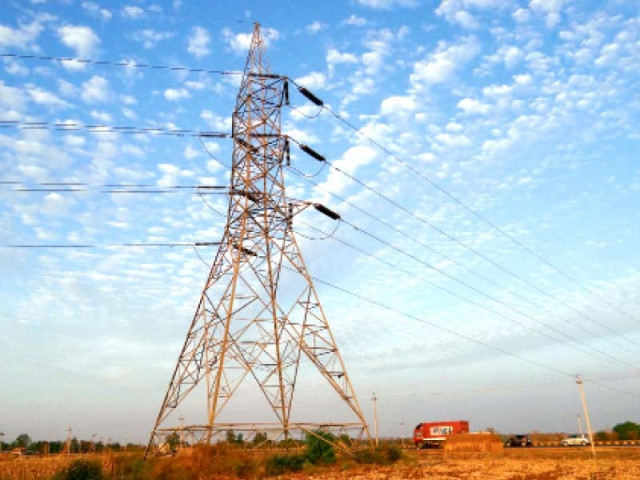ECC expected to approve Rs114.5b grant
Amount will help clear pending subsidy claims of power sector in FY21

The Economic Coordination Committee (ECC) of the cabinet is set to approve Rs114.5 billion in supplementary budget to clear pending subsidy claims in current fiscal year 2020-21.
The government had allocated a subsidy of Rs147 billion for the power sector in FY21, but the finance ministry has released only Rs32.5 billion so far.
In this regard, the Power Division has approached the ECC, requesting approval of a technical supplementary grant of Rs114.5 billion to clear pending subsidy claims of the power sector.
The government had earmarked Rs140 billion for power sector subsidy in FY21. Later, it enhanced the subsidy to Rs147 billion under the title of Lump Sum Provision for Power Sector Subsidy.
The Power Division said that the Finance Division had already released Rs32.5 billion on account of subsidy in line with the orders given by the economic decision-making body on October 26, 2020.
It added that the remaining allocation was available for utilisation by the Finance Division in the remaining period of current fiscal year.
Earlier, the Finance Division was releasing subsidy under different heads following verification by the Ministry of Energy (Power Division).
Now, it has told power sector officials to approach the ECC for getting the remaining amount through a technical supplementary grant against subsidy claims in accordance with the finance disbursement guidelines. Power Division officials said that the remaining Rs114.5 billion would be utilised to cover subsidy claims in FY21. In this regard, the Power Division has sought approval of the ECC.
Tax exemption for raw material
The ECC, in its upcoming meeting, is likely to exempt from taxes and duties the import of auto-disable syringes and raw material/finished products for local manufacturing of such syringes in a bid to facilitate the shift from conventional to auto-disable syringes.
In this regard, the Ministry of National Health Services has prepared a summary for ECC’s review.
In the summary, the ministry said Pakistan was facing a multitude of public health issues due to a rapid rise in blood-borne infections. Prevalence of Hepatitis-C in the country, which is estimated at more than 9%, is quite high and it is resulting in additional infections every year.
With 20,000 new HIV infections in 2017, Pakistan is among a few states reporting a growing AIDS epidemic in the Asian region. Such viruses are disproportionately affecting the vulnerable and marginalised groups of society. One of the major causes of blood-borne diseases in Pakistan is the re-use of syringes. The current ratio of injections per capita is between 8 and 10.
The recent outbreak of HIV in Larkana, caused by unsafe health practices including the re-use of injection needles and syringes for blood transfer, highlights the urgency of tackling such issues.
In order to holistically review the situation and suggest viable solutions, the Ministry of National Health Services, Regulation and Coordination constituted a national task force on injection safety in November 2019.
The task force worked closely with all the stakeholders, including the manufacturers and private healthcare providers, and recommended the replacement of conventional disposable syringes with auto-disable syringes after thorough deliberations.
In line with the recommendation, the health ministry decided to impose a ban on import and manufacturing of conventional syringes. Deadline for the importers to shift from conventional disposable syringes to auto-disable syringes has been extended till March 31, 2021.
However, the prices of conventional syringes are much lower than the auto-disable syringes.
Average price of a conventional disposable syringe of 5 ml is Rs4.72 after accounting for all taxes while the average price of a 5ml auto-disable syringe is Rs7.35 (inclusive of taxes) and that of a 3ml auto-disable syringe is Rs7.09 (inclusive of all taxes).
The auto-disable syringes are 55% costlier than the conventional disposable syringes. Therefore, it is imperative to introduce incentives to encourage the manufacturing of auto-disable syringes and replace the import of conventional syringes with auto-disable syringes.
Exemption from taxes/duties for the auto-disable syringes will not only ensure a smooth switchover to such syringes by the manufacturers but will also ensure supply of these syringes at affordable prices to the end-users.
The ministry highlighted that syringes could also be categorised as life-saving devices. Furthermore, the manufacturers and importers pay sales tax on input and output, which results in a double burden on the end-users.
In this regard, there is a strong justification for waiving taxes/duties on the auto-disable syringes.
In 2020, local production of conventional syringes had a share of around 60% while the remaining 40% was covered by imports. Total consumption stood at 1,100 million syringes.
In order to shift from conventional syringes to auto-disable syringes, the health ministry proposed a ban on import and manufacturing of conventional syringes (2ml, 2.5ml, 3ml and 5ml) with effect from April 1, 2021 and August 1, 2021 respectively, and waiver of taxes/duties on the auto disable syringes with immediate effect till June 2021.
Published in The Express Tribune, March 5th, 2021.
Like Business on Facebook, follow @TribuneBiz on Twitter to stay informed and join in the conversation.



















COMMENTS
Comments are moderated and generally will be posted if they are on-topic and not abusive.
For more information, please see our Comments FAQ